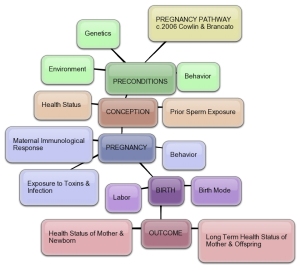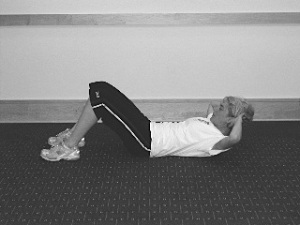How to Get Pregnant — Coaching Topic #1
So let’s get on with the topic of How to Get Pregnant, starting with why do we need to know this?
In the past few decades, the average age for a first pregnancy in the U.S. has moved from the mid twenties into the mid thirties. In the same time period, the facts of conception — sperm enters egg released in mid cycle, then zygote implants in the uterus, along with how sex allows this to happen and how to prevent it — seems to have disappeared from middle and high school health classes. If that weren’t enough, as women have become more and more essential in the work force, the cost of having children as well as starting later, have driven down the birth rate. Similar conditions exist in most developed nations, although teen pregnancy rates are lower everywhere else.
The birthing population has bifurcated — we see older women (over 35) and teens as the major groups having children. On the one hand we have been working to reduce teen pregnancy while helping older and older women become first time moms. To a certain extent, they need the same information; its just that with teens we use this information to prevent pregnancy and with older women we use information to help them increase their odds of getting pregnant.
Understanding the menstrual cycle, ovulation, charting temperature — all the basic techniques of using the “natural” method of birth control — have become the first steps of the how-to-get-pregnant coaches. Beyond this, a number of sites have their own essential lists to help women be healthy and ready. Sites such as gettingpregnant.com, pregnancy.org/getting-pregnant, and storknet.com/cubbies/preconception/ provide additional information. Many suggestions — things to avoid eating, what proteins are needed for ovulation, how to reduce stress, what to do if there are sperm problems, how to find IVF clinics, donors and surrogates — are addressed.
How effective are these suggestions? Well, research tells us they are somewhat effective. None of the sites I contacted answered my query about how they measure or assess consumer outcomes when following their suggestions.
An interesting article in the NY Times 9/1/2011, entitled Are You as Fertile as You Look? openened with this sentence: “FORTY may be the new 30, but try telling that to your ovaries.” The reality is that being under 35 is still the best predictor of how difficult it may be for you to become pregnant. As the article makes clear, looking 30 and being 30 are not the same thing. Even healthy living does not prevent the loss of good eggs.
So, what conclusions can we draw? First, even if you come from a “fertile family,” it may behoove you to have your children in your late 20s or early 30s. Second, if you are putting off having children beyond that time, ask yourself what extremes you are willing to go to to have your own biological offspring. And, third, consider adoption. Frankly, it would be wonderful if adoption were easier, but in the drive to conceive at later and later ages we see the hand of biology and understand why adoption is not easy: Our own offspring — our own DNA out there in the world — is a heady motivation.
If you are on the pathway of becoming pregnant, being under 35 is the best ally you have. If not, maybe some of the suggestions on the web will work for you. Whatever you decide, all the best.
One parting comment: Regular moderate exercise — while it helps you stay young and healthy — will not prevent your eggs from being popped out every month. It will help you have a healthy pregnancy if you conceive, so stay with it!




